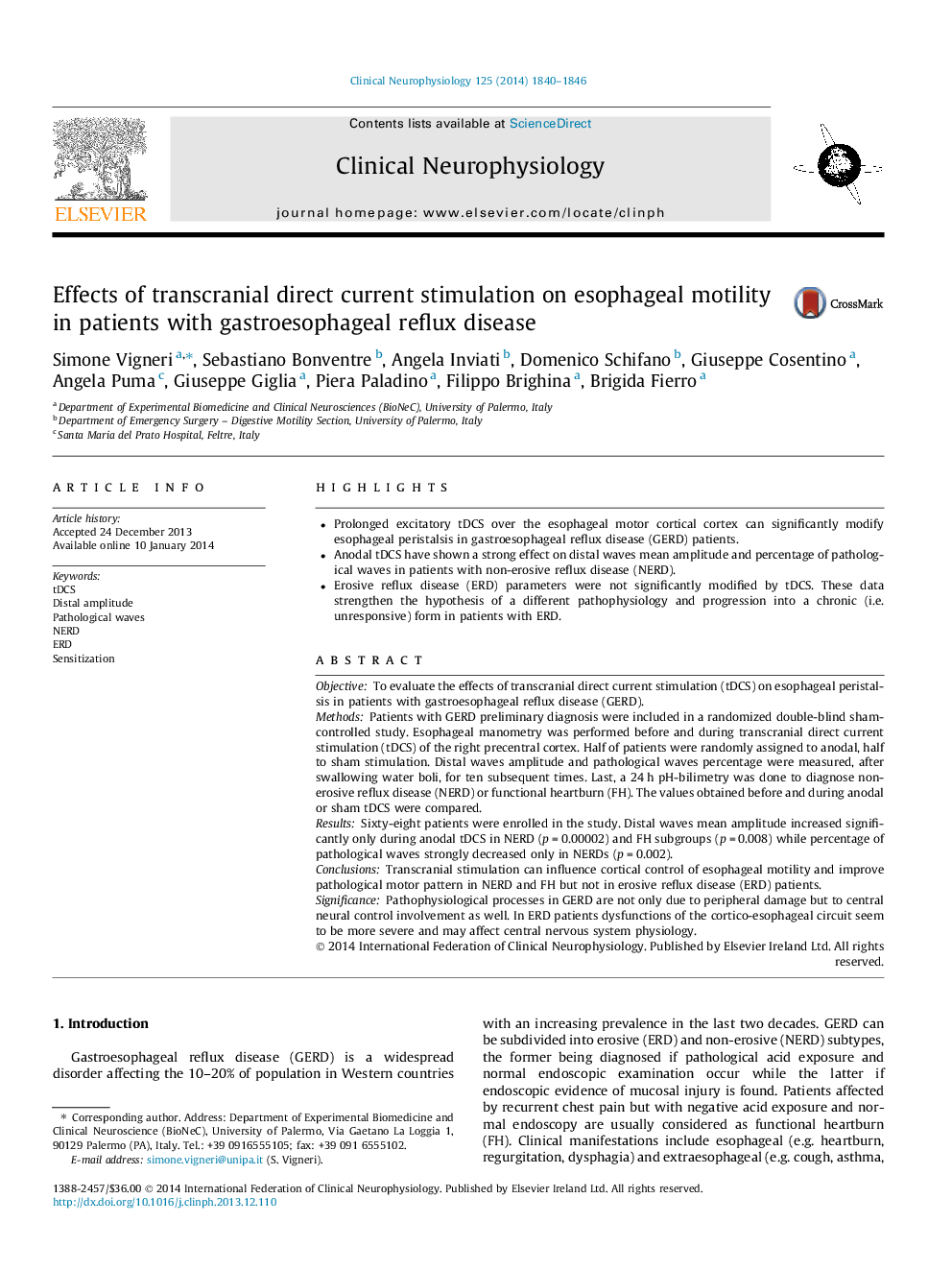| Article ID | Journal | Published Year | Pages | File Type |
|---|---|---|---|---|
| 3043183 | Clinical Neurophysiology | 2014 | 7 Pages |
•Prolonged excitatory tDCS over the esophageal motor cortical cortex can significantly modify esophageal peristalsis in gastroesophageal reflux disease (GERD) patients.•Anodal tDCS have shown a strong effect on distal waves mean amplitude and percentage of pathological waves in patients with non-erosive reflux disease (NERD).•Erosive reflux disease (ERD) parameters were not significantly modified by tDCS. These data strengthen the hypothesis of a different pathophysiology and progression into a chronic (i.e. unresponsive) form in patients with ERD.
ObjectiveTo evaluate the effects of transcranial direct current stimulation (tDCS) on esophageal peristalsis in patients with gastroesophageal reflux disease (GERD).MethodsPatients with GERD preliminary diagnosis were included in a randomized double-blind sham-controlled study. Esophageal manometry was performed before and during transcranial direct current stimulation (tDCS) of the right precentral cortex. Half of patients were randomly assigned to anodal, half to sham stimulation. Distal waves amplitude and pathological waves percentage were measured, after swallowing water boli, for ten subsequent times. Last, a 24 h pH-bilimetry was done to diagnose non-erosive reflux disease (NERD) or functional heartburn (FH). The values obtained before and during anodal or sham tDCS were compared.ResultsSixty-eight patients were enrolled in the study. Distal waves mean amplitude increased significantly only during anodal tDCS in NERD (p = 0.00002) and FH subgroups (p = 0.008) while percentage of pathological waves strongly decreased only in NERDs (p = 0.002).ConclusionsTranscranial stimulation can influence cortical control of esophageal motility and improve pathological motor pattern in NERD and FH but not in erosive reflux disease (ERD) patients.SignificancePathophysiological processes in GERD are not only due to peripheral damage but to central neural control involvement as well. In ERD patients dysfunctions of the cortico-esophageal circuit seem to be more severe and may affect central nervous system physiology.
